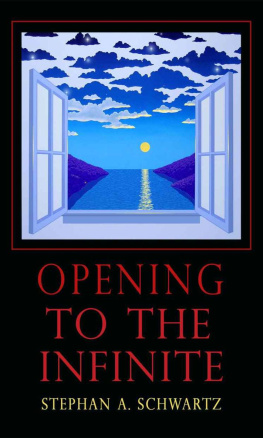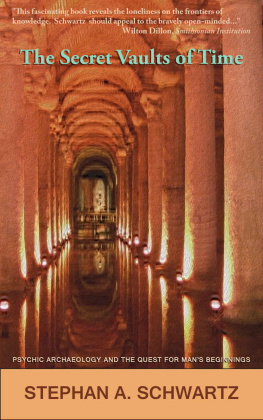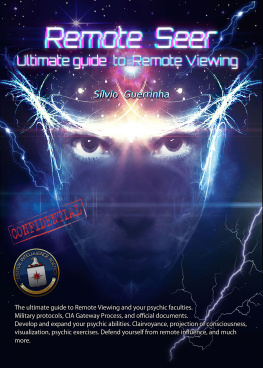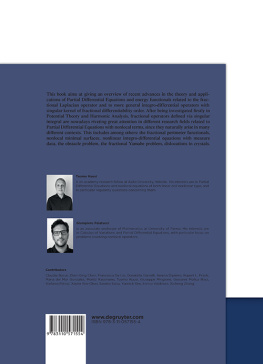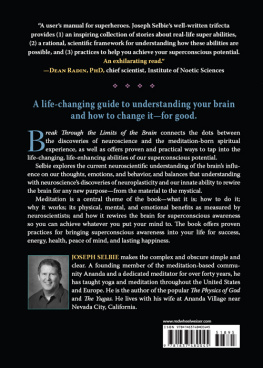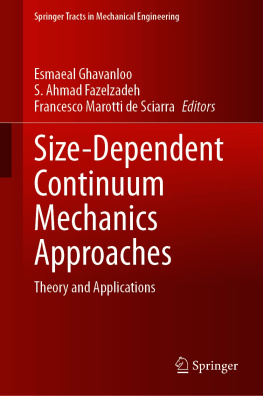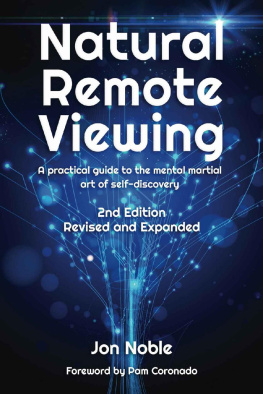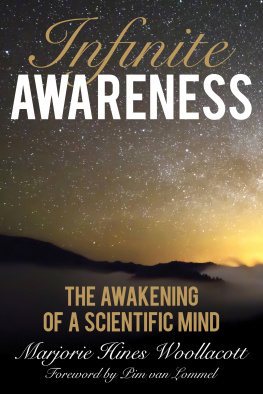Critical Comments On
Opening to the Infinite
Stephan Schwartz is one of the most creative people to ever turn their attention to the further reaches of the human mind - and a clear, entertaining writer to boot. Opening to the Infinite is must reading for both layperson and scientist, and will inform and stimulate (a) those who want to know the kinds of things a human mind can sometimes do, and (b) those who want useful instruction on how to do it themselves! You can't ask for more.
Charles Tart, PhD
Author of: The End of Materialism
Once again Stephan Schwartz has provided an insightful, accurate, and always entertaining read about a controversial topic. He has brought together a wide range of research results (including his own), added a mixture of philosophy and speculation, and made the whole topic relevant in describing a host of successful applications. I recommend this book to the general public and professionals alike.
Edwin May, PhD
Director Laboratories for
Fundamental Research
Head of the STARGATE
Remote Viewing Programs at SRI and SAIC
Stephan Schwartz has been a preeminent researcher in the field of remote viewing for nearly four decades. Whether you are neophyte-curious, or an experienced practitioner of Remote Viewing, you will learn things you never knew before.
Colonel John Alexander, PhD, USA (Ret.) Author of:
Concepts for the Post-9/11 World
This important book written by an experienced and thoughtful Remote Viewing researcher presents exciting experiments that have never before been published, and goes far beyond popular descriptions of such abilities. Based on his three decades of research, Schwartz presents comprehensive information on the most successful physical and psychological approaches discovered in the laboratory to increase accuracy and reliability of remote viewing. Schwartz invites us to learn to expand our awareness far beyond our ordinary understanding of space and time.
Russell Targ
Co-founder of the SRI Remote Viewing program.
Author of: Limitless Mind: A Guide to Remote Viewing and Transformation of Consciousness
"A compelling argument for Remote Viewing. A must-read for all who wish to know more about this fascinating field."
Michael Murphy
Co-founder and Chairman
Esalen Institute
Author of: The Future of the Body
OTHER BOOKS BY STEPHAN A. SCHWARTZ
The Secret Vaults of Time
The Alexandria Project
Mind Rover
Opening To The Infinite
The Art and Science of Nonlocal Awareness
Stephan A. Schwartz
Copyright 2007 by Stephan A. Schwartz
All rights reserved, including the right to reproduce this book, or portions thereof, in any form.
Cover image copyright 2007 by Jonathan Meader
DISCLAIMER
The listing of other Web sites and references as potential sources of information does not mean that either the author or publisher endorses anything that might be said there.
A Nemoseen Book
Published by Nemoseen Media
3648 Davie Lane
Langley, Washington 98260
www.nemoseen.com
ISBN: 978-0-9768536-1-9
4 5 6 7 8 9 10
Printed in the United States of America
For
Katherine and Lea
And in memory of
My beloved Hayden
Table of Contents
Acknowledgements
This is the book my late wife, Hayden, wanted me to write. I kept putting it off, then did a shorter form of the book, realizing that some day I would have to revisit the issue of how to open oneself to nonlocal awareness in a more comprehensive way. It took several decades, but finally I felt I could responsibly talk about this ability, and this is the result of that realization.
It is a rare book, as any author knows, that gets done without help, great and small, and I am no different. This book would not exist had it not been first of all for Haydens gentle leaning in the direction she knew I should move.
But it also would not have been the book it has become had it not been for the gracious support and assistance of peers, colleagues, and friends. In a number of cases single individuals have been all three. I particularly would like to thank: James Spottiswoode, Edwin May, Russell Targ, Charles Tart, Ingo Swann, Judith Orloff, Larry Dossey, Rupert Sheldrake, Hal Puthoff, Dale Graff, Henry Reed, George McMullen, Andre Vallaincourt, Ingo Swann, Ben Moses, Alan Vaughan, Eric and Gail Lawton, Rand De Mattei, Paul Smith, Nathaniel Branden, Michael and Dulce Murphy, Jim Baraff, Michael Reidy, Christine Fallwell, Ronlyn Osmond, and Cathy Good. I particularly thank Jeff Mishlove who, like Hayden, patiently urged me to write this book.
The initial seed funding I received from The Institute for Noetic Sciences got me started on this project, and I want to thank Marilyn Schlitz who made this available, as well as the generous support of Pat and Karen Proft, which came at a critical period in the middle of this project, and made it possible for me to continue.
I am deeply appreciative of Ginette Nachmans comments and questions, which helped me to clarify for readers exactly what I was trying to say. Thanks to Sandra Cannon, for setting up the index; and to Brian Fountain, who helped me work through the quirks of my word processor to make the formatting stable.
One person particularly needs to be singled out Amy McBride. Without her involvement the book in this final incarnation would never have been completed. Her unflagging support and careful reading, telling me where she was stuck, as well as her checking of my punctuation, gives the manuscript much of its polish.
Stephan A. Schwartz
Virginia Beach, Virginia
The only acceptable point of view appears to be the one that recognizes both sides of realitythe quantitative and the qualitative, the physical and the psychicalas compatible with each other, and can embrace them simultaneously.
Wolfgang Pauli, 1955
Nobel Laureate, Physics
Introduction
On Monday afternoon, the 3rd of November 2003, after being taught the basic Remote Viewing could provide the answer. Forty-seven of them agreed to try.
After being collected the students data was
This consensus analysis technique is roughly analogous to the one used by police detectives and journalists when they attempt to reconstruct an event based on eyewitness observations. Each person provides independent data. Not everyone will see every aspect, and not everything they say will be correct, however sincerely well-meant. But, by comparing the individual sense-impression patterns, and the knowingness that develops during the sessions, you will see certain patterns emerge, and you will notice observations that stand out because of their unusual nature. Through the use of this consensus approach a reasonable approximation of what actually occurred can be constructed. The Remote Viewing data are used in the same way, even though it may be describing an event that lies in the future, which has not yet occurred.
The men and women who provided the sense-impressions were mostly new to Remote Viewing. They were middle-aged, and largely professional. Amongst the men there were a smattering of retired and active duty military personnel, mostly from special forces units, or the intelligence world The observations of the men did not differ significantly from those of the women, many of whom were health practitioners or long-time intuition self-empowerment teachers, or students.
The session was a genuine experiment. The protocol was double-blind neither I, the viewers, nor anyone else in the U.S. knew the answer to the challenge.
The data produced by the seminar students were photocopied and distributed to several people, and the originals were turned over to an independent third partyin the instant, Herk Stokeley, Director of Atlantic Universitywho placed the session documents in an envelope. This he sealed in front of a notary, who affixed her seal across the envelopes flap. It was then placed in a vault. Thus, the data were impervious to charges of fraud because an unimpeachable chain of chronology had been established.

